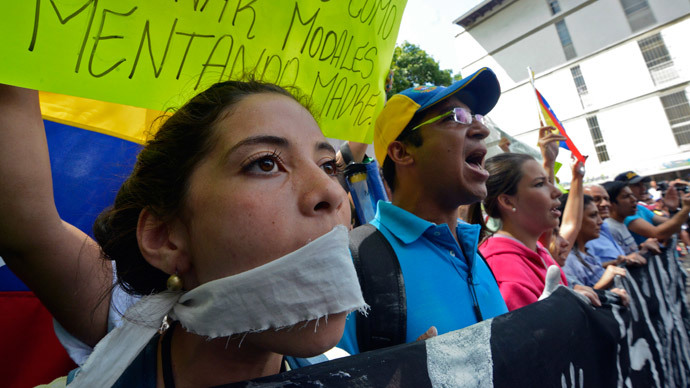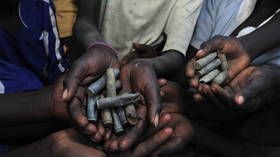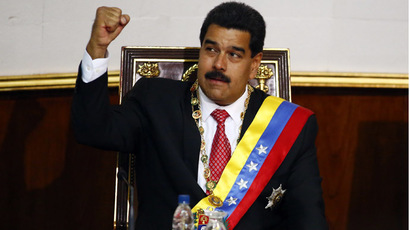US diplomats given 48 hours to leave Venezuela

Venezuela has given three American diplomats from the US Embassy in Caracas 48 hours to exit the country after President Nicolas Maduro leveled accusations of conspiracy and meeting with students to incite anti-government sentiment.
Following days of opposition protests, three unnamed diplomats were declared persona non grata by Maduro during a televised address on Sunday night. On Monday Venezuela’s Minister of Foreign Affairs Elias Jaua announced that the US diplomats in question were vice consuls Breann Marie McCusker and Jeffrey Elsen, and Kristofer Lee Clark, who holds the rank of second secretary at the US consulate.
Jaua said during a press conference that the three officials had assisted “groups that seek to generate violence in the country,” and that they had 48 hours to leave.
As evidence, Jaua cited email correspondence from US embassy officials in recent years that supposedly call for funding from Washington to support Venezuelan student groups, AP reported.
He added that the diplomats sought contacts “for the training, the financing and the creation of youth organizations to foment violence.”
"It's a group of US functionaries who are in the universities. We've been watching them having meetings in the private universities for two months. They work in visas," Maduro stated Sunday in a nationally televised broadcast.

Last Wednesday, over 10,000 people poured onto the streets of Caracas to peacefully protest their growing worries, such as the country's high murder rate and a record-breaking 56 percent inflation.
At the end of Wednesday’s opposition protests, a group of students battled with security forces and pro-government militias, leaving three people dead. Maduro’s government blamed the violence on Harvard-educated opposition leader Leopoldo Lopez, whom Maduro accuses of leading a US-backed "fascist" plot to oust the socialist government.
“There is a fascist group that abuses public freedoms and democracy to play politics and prepare to overthrow the government,” Maduro said.
In addition, journalist Miguel Angel Perez presented a video on Venezuelan state channel TeleSur on Monday, claiming it is a recording of a telephone conversation between two far-right political elements. In the recording, a “retired general from the Venezuelan Army” and Ramón Guillermo Aveledo member of opposition group The Democratic Unity Roundtable, talk about the possible ouster of the current government.
Angel Perez said this was clear evidence of a conspiracy plan to destabilize Venezuela.
The US State Department responded Monday, calling Maduro’s allegations “baseless and false.”
“As we have long said, Venezuela's political future is for the Venezuelan people to decide,” said State Department spokeswoman Jen Psaki, according to AFP.
Protests in Caracas continued Monday, Ruptly news agency reported, as hundreds anti-government protesters marched to the offices of media regulatory body Conatel.
Lopez and opposition allies announced Monday they will reroute a protest on Tuesday away from the central plaza in Caracas to avoid clashing with a simultaneous pro-government march called for by Maduro.
Gregory Wilpert, author of "Changing Venezuela by Taking Power," says the more radical end of Maduro's opposition has decided to act now to highlight inflation and shortages in the national economy. Though he said the protests will likely have more of an impact on Maduro's image than his grip on power.
"(The protests) represent more of a challenge to his public relations, I think, than an actual challenge to his power," Wilpert told RT in an interview. "Internationally, there's been a tremendous amount of success in portraying the government as having cracked down on opposition demonstrators and making the government look bad in that sense."
He said the charges of US subterfuge must be put into proper historical perspective, at least at this early juncture.
"One has to see those accusations in the context of US history and its interference throughout Latin American countries over the past century," he said. "There's a long series of interventions, and that makes especially left governments of Latin America very suspicious of US government intentions."














